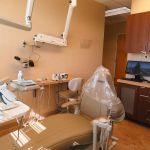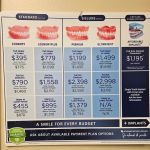Oral health is a critical aspect of overall well-being, yet many people encounter oral issues like ulcers without understanding their causes. Determining whether an oral ulcer is infectious or due to another condition is crucial for effective treatment. Getting to the root of the problem can help prevent chronic discomfort, facilitate recovery, and improve daily functioning. In the U.S., where modern lifestyle and dietary habits frequently contribute to oral health problems, understanding these distinctions is especially important. Join us at Dentistry Toothtruth as we delve into the details of oral ulcers, exploring how to differentiate between those caused by infections and other factors.
Understanding Oral Ulcers
Oral ulcers are lesions that can occur on the inner lining of the mouth, causing discomfort or pain. These can appear as sores, patches, or open wounds and may vary in size and severity. It's essential to note that not all oral ulcers are indicative of infection. Many are benign and can result from minor injuries, stress, nutritional deficiencies, or autoimmune disorders. To distinguish if an ulcer is caused by an infection, several signs must be analyzed, including the ulcer's appearance and symptoms like fever or swollen lymph nodes.
Signs of Infectious Ulcers
Infectious oral ulcers are often distinguished by specific characteristics that non-infectious ones lack. Common types of infectious ulcers include those caused by viral infections like herpes simplex or bacterial infections such as syphilis. Symptoms of infectious ulcers typically involve consistent pain, a higher propensity to recur, and an association with other systemic symptoms like fever. If a patient reports these symptoms, further evaluation and laboratory testing may be required to confirm the infectious nature and identify the exact cause.
Non-Infectious Causes
While infections are a common cause, many oral ulcers arise from non-infectious origins. The most frequent of these are aphthous ulcers or canker sores, affecting a significant portion of the population. Stress, certain dietary elements, or a deficiency in vitamins like B12 or iron can trigger these. Unlike infectious ulcers, these tend to heal without medication but might require pain management and dietary adjustments. Understanding these can lead to lifestyle changes that mitigate the frequency and severity of ulcer occurrences.
Diagnosis and Treatment
Determining the cause of an oral ulcer is the initial step towards appropriate treatment. Diagnostic methods include physical examination, patient history intake, and potentially, blood tests or swabs. For infection-related ulcers, antiviral or antibiotic medications might be prescribed, whereas non-infectious ulcers might benefit from topical treatments or nutritional supplements. The journey to recovery is also supported by maintaining a rigorous oral hygiene regime, avoiding irritants, and managing stress effectively.
Preventive Measures
Prevention of oral ulcers, whether infectious or not, contributes significantly to maintaining a healthy oral environment. Regular dental check-ups, a balanced diet rich in essential vitamins, and hydration are key preventive measures. Adopting stress-reduction strategies and avoiding known irritants like tobacco and excessively spicy foods can also reduce ulcer vulnerability. The role of education cannot be overstated, and resources like Dentistry Toothtruth provide invaluable guidance and tools to equip individuals in managing their oral health proactively.
Conclusion
Recognizing the differences between infectious and non-infectious oral ulcers is integral to obtaining effective treatment and avoiding complications. By focusing on the symptoms and underlying causes, patients can seek appropriate care from dental professionals. Engaging with educational platforms such as Dentistry Toothtruth empowers individuals with knowledge that fosters healthier decisions and practices. If you suspect that an oral ulcer is symptomatic of something more serious, seek professional advice. Prompt diagnosis and treatment are crucial to safeguarding your oral health and ensuring a swift return to comfort and well-being.




 West Valley Endodontics and Oral Surgery4.0 (79 review)
West Valley Endodontics and Oral Surgery4.0 (79 review) Central Park Dental4.0 (519 review)
Central Park Dental4.0 (519 review) Mooso Orthodontics5.0 (189 review)
Mooso Orthodontics5.0 (189 review) Hassan Ismail5.0 (1 review)
Hassan Ismail5.0 (1 review) King of Prussia Dental Associates4.0 (113 review)
King of Prussia Dental Associates4.0 (113 review) Affordable Dentures & Implants4.0 (757 review)
Affordable Dentures & Implants4.0 (757 review) The Importance of Oral Health Education During Pregnancy for a Healthy Pregnancy
The Importance of Oral Health Education During Pregnancy for a Healthy Pregnancy Best Tips for Brushing Your Teeth Properly for Healthy Gums: Essential Techniques for Oral Health
Best Tips for Brushing Your Teeth Properly for Healthy Gums: Essential Techniques for Oral Health Why Skipping Dental Checkups Can Lead to Bigger Oral Health Problems
Why Skipping Dental Checkups Can Lead to Bigger Oral Health Problems Advantages of Porcelain Dental Restorations
Advantages of Porcelain Dental Restorations How Can Diabetes Cause Tooth and Gum Problems? Preventing and Managing Oral Health Issues
How Can Diabetes Cause Tooth and Gum Problems? Preventing and Managing Oral Health Issues Healthy Habits for Promoting Good Oral Health and Hygiene: Tips for a Healthy Smile
Healthy Habits for Promoting Good Oral Health and Hygiene: Tips for a Healthy Smile